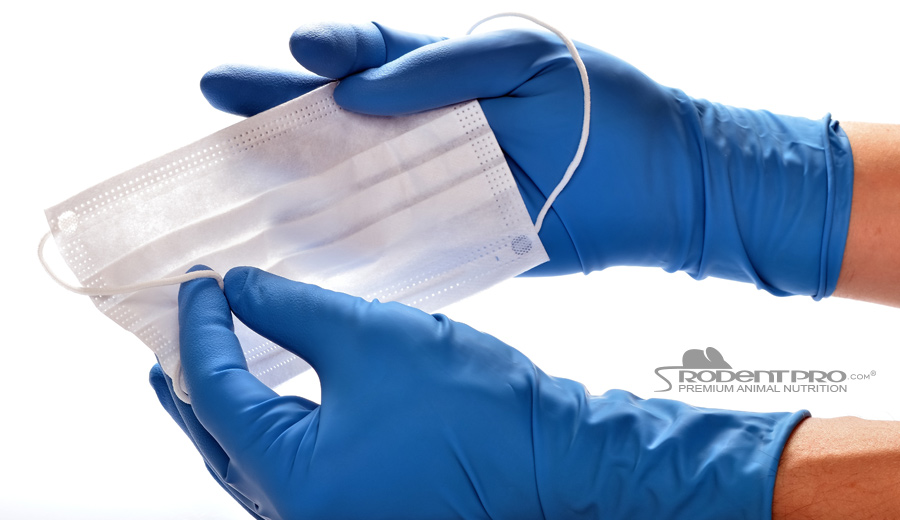Many captive carnivorous and omnivorous animals are routinely fed frozen/thawed foods such as meat, meat-based products, and whole prey items. Since daily food availability is critical to any captive animal, most purchases are made in bulk, requiring the items to remain frozen and stored until used. Given the perishable nature of meat, appropriate food-handling procedures are crucial to the nutritional quality of the food, and consequently, to the successful management and welfare of the animal consuming it.
Once a frozen food shipment has been received, it should be immediately inspected and stored in the freezer. It is recommended that meat stored for prolonged periods of up to a year should be stored in a freezer with temperatures maintained at –10 F or lower. To help ensure freshness, always use food items on a first in-first out basis.
Frozen animal food can carry germs that can make people sick. Freezing does not always kill these germs. Avoid handling frozen animal food if you are at greater risk for serious illness. Children 5 years old or younger, pregnant women, and people with weakened immune systems are at greater risk. Consider using personal protective equipment (PPE) such as a mask and latex or nitrile gloves when handling frozen animal food. Always wash your hands immediately after handling frozen animal food or after touching anything that came in contact with it. After washing and drying your hands, consider using an alcohol based hand sanitizer. Clean and disinfect all surfaces and equipment such as feeding tongs, forceps, food containers, tables, etc. after every use. Sanitize by washing with hot water of 180 F or higher utilizing soap or detergent or by washing all soiled surfaces with a detergent solution followed by a final sanitizing rinse of 1 part bleach to 9 parts water. Never eat, drink, or smoke while handling frozen animal food. Keep frozen animal food out of the kitchen or other areas where food for human consumption is stored, prepared, served, or consumed.
The thawing process is crucial to the product’s final quality. The safest and most preferable way to thaw frozen animal food is in a refrigerated space at 40 F. Frozen animal food should not be thawed by exposure to excessive heat such as a microwave or hot water. Never use the kitchen sink or food preparation areas to thaw frozen animal food. If a food item is uneaten for any reason it should be discarded. Do not be tempted to refreeze uneaten items or to offer them to other captives as this is an excellent way to transfer disease between animals.
Time and again when an instance of contamination is reported it is found that the victims have failed to exercise due care in their actions. Please follow these safe handling tips to help keep you and your captive animal safe and healthy.
We carry a full line of personal protective equipment (PPE) including masks and latex or nitrile gloves and hand sanitizer to meet your safety needs. Contact us today if you have questions about any of our products.



